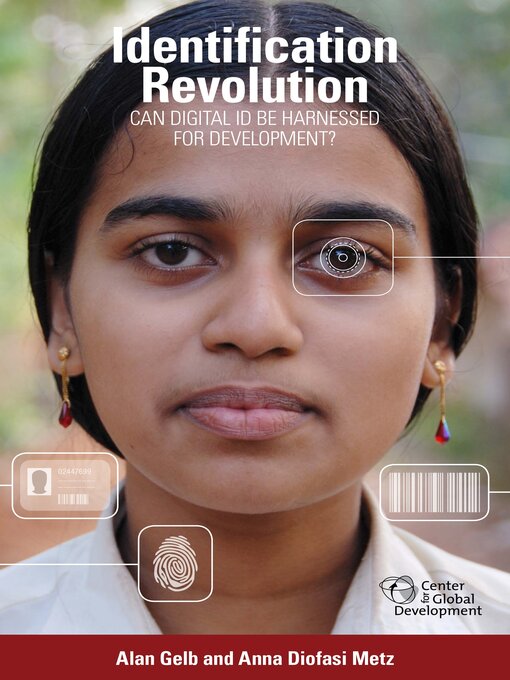- All OverDrive eBooks
- Audiobooks
- African American Nonfiction
- Asia and Pacific
- Banking
- Biography and Autobiography
- Climate Change and Sustainability
- Economics
- Energy
- Europe
- Finance
- FinTech and Cryptocurrency
- History & Politics
- See all library network collections collections
Recent advances in the reach and technological sophistication of identification systems have been nothing less than revolutionary. Since 2000, over 60 developing countries have established national ID programs. Digital technology, particularly biometrics such as fingerprints and iris scans, has dramatically expanded the capabilities of these programs. Individuals can now be uniquely identified and reliably authenticated against their claimed identities. By enabling governments to work more effectively and transparently, identification is becoming a tool for accelerating development progress. Not only is provision of legal identity for all a target under the Sustainable Development Goals, but this book shows how it is also central to achieving numerous other SDG targets.
Yet, challenges remain. Identification systems can fail to include the poor, leaving them still unable to exercise their rights, access essential services, or fully participate in political and economic life. The possible erosion of privacy and the misuse of personal data, especially in countries that lack data privacy laws or the capacity to enforce them, is another challenge. Yet another is ensuring that investments in identification systems deliver a development payoff. There are all too many examples where large expenditures—sometimes supported by donor governments or agencies—appear to have had little impact.
Identification Revolution: Achieving Sustainable Development in the Digital Age offers a balanced perspective on this new area, covering both the benefits and the risks of the identification revolution, as well as pinpointing opportunities to mitigate those risks.
-
Creators
-
Publisher
-
Release date
December 30, 2018 -
Formats
-
OverDrive Read
- ISBN: 9781944691042
- File size: 4902 KB
-
EPUB ebook
- ISBN: 9781944691042
- File size: 4902 KB
-
-
Accessibility
No publisher statement provided -
Languages
- English
Why is availability limited?
×Availability can change throughout the month based on the library's budget. You can still place a hold on the title, and your hold will be automatically filled as soon as the title is available again.
The Kindle Book format for this title is not supported on:
×Read-along ebook
×The OverDrive Read format of this ebook has professional narration that plays while you read in your browser. Learn more here.
